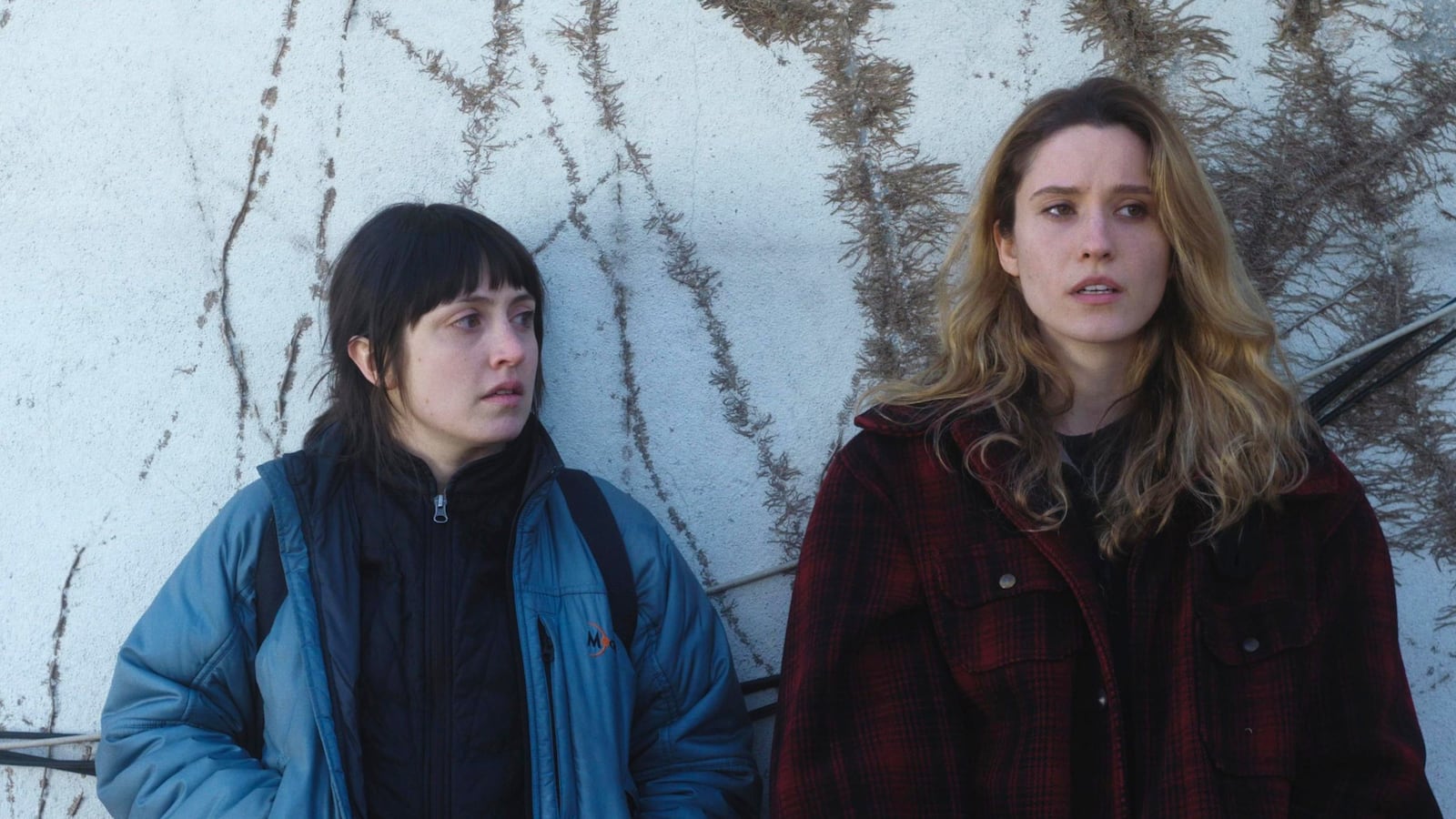How do you care for a friend who will never stop needing your care, not even for a moment? How do you hold onto both the promise and untenability of such a friendship at once? These are questions as difficult to pose as to answer, questions that can make misery out of a relationship that otherwise comes from a place of mutual enjoyment and real love. But these are also crucial reflections when it comes to chronic mental illness and care, and Dan Sallitt’s Fourteen is the rare film to give the subject a carefully sustained and deeply felt, yet open and engaging depiction.
In the film, the excellent Tallie Medel plays the patient and practical Mara, a grade school teacher’s aide who gamely takes the difficult steps to secure a full-time teaching job in New York City. She’s also a writer, and manages—between spending all day with small children and pursuing her master’s in education—to complete stories and submit them to publications. Mara’s life isn’t glamorous, but the level of intention and dedication she puts into her days is admirable. Her best friend since first grade, Jo, played by Norma Kuhling, is her foil, of sorts: “eccentric and anxious” on the surface, and deeply intelligent and sardonic through and through. Both women embody a kind of brilliance that seems to come alive the most between close friends, the ability to observe and communicate in swift turns of phrase, a shared language that is beyond language—you might call that attention, the kind of attention you don’t get from anyone other than a friend who knows you and is willing to inconvenience themselves for you.
But Jo, who has a chronic mental illness that is never named in the film, has been struggling for years to get a handle on her life. She’s an adept social worker, but never shows up to work on time and cannot seem to manage professional relationships. She cycles through romantic partners whom she connects with on varying levels; one literally runs away when she has a mental break. She stops taking her medication, again and again, to predictable outcomes. Mara goes “above and beyond the call of duty” (to echo a boyfriend who commends her for an entirely different instance of generosity, toward him) to make sure Jo doesn’t lose her career altogether. This action isn’t presented as a big deal in the film, but as the kind of care work Mara just does as Jo’s friend who understands—at least more than most others—Jo’s difficulties.
But the care work isn’t romanticized—it does take a toll on Mara. Even with her unusually high levels of patience and understanding, there is an underlying exasperation that she increasingly struggles to conceal. Fourteen is adept in being honest about the ways that those with chronic mental illness struggle with feeling like a burden to their loved ones, and the ways those who truly love them fight to demonstrate their love and commitment, yet sometimes fail, as anyone would. The truth is that constant care can feel like a burden at times, but when it comes to friendship, it’s the kind of work that’s chosen. Because she loves Jo, and probably because Jo showed up for her at a difficult time in her own childhood, Mara is willing to inconvenience herself for her friend—to break dates, derail plans, wait for hours after agreed meeting times to show up for Jo.
Eventually, however, as the two women age further into adulthood, Mara’s responsibilities in care must go elsewhere. And because Jo has not been well enough to carry on a mutually attentive relationship with Mara—at least since they were fourteen—the two drift apart. In the film, it’s implied that Jo and Mara fall out of touch because, as Mara says over the phone, “it just became too much.” Out of context, this sounds like Mara finally just giving up on Jo. But actually, it’s the first instance where Mara decides it’s OK to have boundaries, to say no to a dynamic that is perhaps a stopgap or momentary salve for Jo in desperate moments, but not sustainable for Mara even in the best of times. Mara’s new mastery of boundaries is not exactly a triumph, however, because it only emphasizes the ways in which providing care often does not mean providing solutions. Jo and Mara’s relationship does not improve as Mara’s own life improves because so much of their relationship is about whether or not Jo—and not Mara—will ever find long-term stability, something Mara can never give to Jo no matter what she does.
We’ve seen friendships like Mara and Jo’s enacted in young adult television shows, most notably in Girls and the more recent Euphoria. What sets Fourteen apart is the way Sallitt is able to portray the lack of momentum in relationships that are based on lopsided care. There is no cliffhanger, no twist and turn of plot, but the everyday, the passing season, what is done and said and what isn’t. As a result, the film is able to hold space for both great salvation and incredible disappointment, all without resorting to melodrama—a remarkably human balance.


